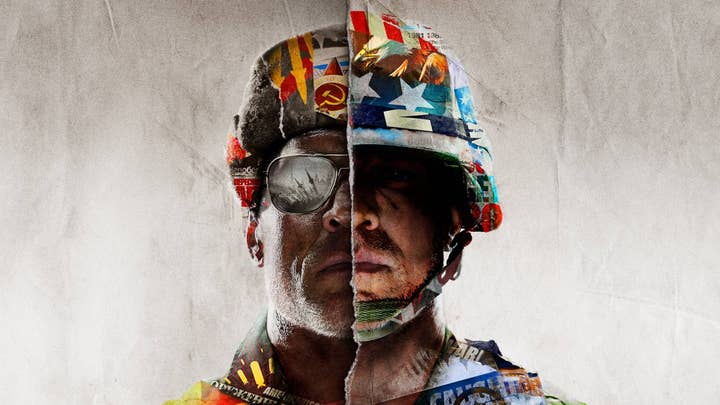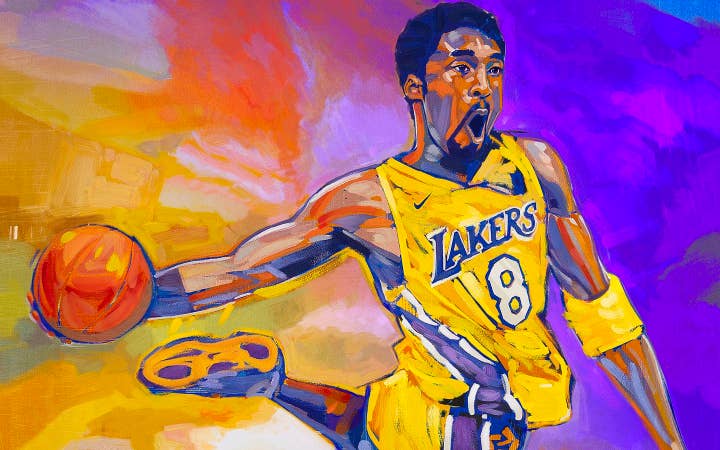The $70 AAA price point -- it's about time | Opinion
No consumer is going to be enthused about a price rise, but 15 years of $60 has done no favours to either gamers or creators
Amid the excitement around the launch of the next-gen consoles, one aspect that's stirred controversy -- and is likely to continue to do so long after the initial buzz of the launches has worn off -- is the likelihood that this hardware transition will bring with it a software price hike.
Major publishers are keen to move to a $70 price point for AAA titles, using the new consoles as an opportunity for that step-change -- a strategy that both Sony and Microsoft appear to support, with Microsoft CFO Tim Stuart last week arguing that the price rise is justified, though not revealing as yet whether the company's own first-party titles for Xbox Series S|X would fall in line with this move to $70. The message from all sides seems pretty clear, though; the industry largely seems to be presenting a united front and treating the price hike as a fait accompli.
It's hardly surprising that there's been push-back on this, of course. Nobody likes a price hike, and pressure from consumers to keep prices low is part of the healthy functioning of the market. However, Stuart's half-joking comment that it was "about time" that prices rose is actually pretty solidly on the money; even though as a consumer I'm not exactly thrilled about paying more for games (who would be?), it's undeniable that the longevity of the $60 price point is unsustainable at this stage. In fact, the industry's reticence to lift that headline price has arguably led to a number of negative consequences for games themselves.
The industry largely seems to be presenting a united front and treating the price hike as a fait accompli
A quick history lesson is perhaps in order. The $60 price point was effectively established at the start of the Xbox 360 / PS3 generation, back in 2005, with Activision in particular championing the new price point for the launch of its big headline franchises on the then-new consoles. There was a fair bit of lamentation about this at the time, and it was essentially seen as being the bell finally tolling for the era of cheap games that had been ushered in by the original PlayStation -- prior to which cartridge-based game systems had regularly charged $70 or $80 for AAA titles.
The $60 price point has stuck around for 15 years and two entire console generations, despite some major increases to game development budgets during that time. Most justifications for the current price hike focus on those development costs, and with good reason; even leaving aside the dramatic increase in the fidelity of game assets and systems that consumers demand now compared to 15 years ago, the sheer volume of assets that modern games require is also a huge factor to bear in mind.
Not everyone is thrilled at the current preponderance of open world games, but that doesn't change the reality that something like Assassin's Creed Valhalla or Watch Dogs: Legion demand an amount of content and assets that was almost unimaginable back when the Xbox 360 was shiny and new (and occasionally adorned with blinking red rings). Fully voiced, performance-captured characters interacting with rich, detailed worlds are de rigeur for a AAA game at this point, and that doesn't come cheap.
It's undeniable that the longevity of the $60 price point is unsustainable at this stage
That being said, the new console generation really is just an excuse for this price increase. The actual cost step-up from developing for PS4 to PS5, or Xbox One to Xbox Series, isn't all that dramatic -- certainly not in the ball-park of the enormous cost increases that studios experienced during some previous hardware transitions. That doesn't change the fact that development costs really have soared in the last 15 years, though. It also doesn't change what's arguably an even more fundamental justification for this price rise, which is that the effects of inflation over that time period mean that in real terms, games are cheaper now than they've ever been.
If the cost of AAA games had risen in line with the US consumer price index over the past 15 years, that $60 price tag would have risen to $80; $70 in 2020 money is actually worth just a notch over $52 in 2005 dollars. In real terms, this price rise is actually only bringing us back in line with the cost of games in the PS2 era -- incidentally, if you adjust for inflation, those expensive SNES cartridges would cost about $140 to $150 each in today's money.

The thing is, this price increase -- while pretty well justified -- is coming at a time when, honestly, it's never meant less. Not because $10 isn't still a chunk of cash, especially to younger consumers, but because pricing itself has become incredibly flexible and varied. When Activision put its foot down on the $60 price tag for AAA games on the Xbox 360, that caused a major change in pricing strategy across the industry. The shift now to $70 is much less meaningful simply because even new console games are regularly priced at anything from $20 for smaller indie titles, via $40 or $50 for mid-range titles or "expansions in all but name" -- like Sony's own Spider-Man: Miles Morales -- all the way up through the regular AAA pricing to special editions laden down with season passes and extras that command $100 price tags.
This price increase -- while pretty well justified -- is coming at a time when, honestly, it's never meant less
Meanwhile, the monolithic price tag itself is also no longer the only game in town. Microsoft talking supportively about higher AAA prices is happening in the context of the company's own AAA titles rolling out day-and-date to people paying a tenner a month for Game Pass. Sony's corresponding pricing strategy comes in the context of PS Plus expanding its offering to look increasingly like a subscription game library.
There's also the reality, of course, that the shift to digital distribution has led to experimentation with various kinds of live-service models and other approaches to monetisation. Even leaving aside the likes of Game Pass, there's also an increasingly complex pricing environment -- especially for games which are "free to start", which sport various free-to-play models (some rather more welcome than others), subscription systems, battle passes and so on, but also for "premium" games that try to build additive revenue streams from DLC, season passes, cosmetic items and even in-game currencies or loot boxes.
This, perhaps, is where we can see some of the damage caused by game pricing being stuck firmly at $60 for the past 15 years, even as development costs have soared and inflation has inexorably devalued those dollars. It doesn't excuse some of the gouging and distinctly anti-consumer approaches that publishers have adopted, but the reality of trying to square the circle of rising costs and a stubbornly immobile price point can't be ignored either.
The jump to $70 is unlikely to spell an end to these kinds of monetisation approaches, of course -- not least because a $10 rise really isn't even keeping pace with inflation -- but it does create a bit of extra flexibility and highlights the extent to which a wider range of prices are now a realistic option. The tricky part, of course, is figuring out which price the market will support for a given game; where in past decades games tended to cost much the same regardless of how "premium" consumers perceived them to be, this new flexibility has effectively created a price discovery mechanism, meaning that publishers must learn to be bluntly realistic in their assessment of how much consumers will actually be willing to pay.
Customers are now accustomed to different pricing levels, and will be unforgiving to games that overshoot the price point the market considers fair. The $70 level for premium games, though, is here to stay; and if it allows even a minority of publishers to make better, more consumer-friendly decisions about their other monetisation options, it might end up being something we're all grateful for in the end.









